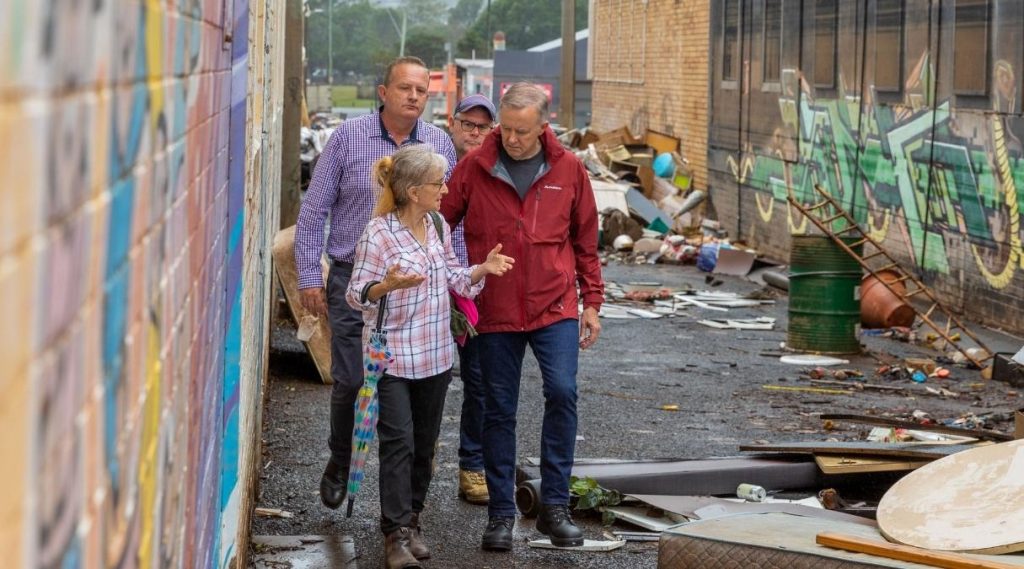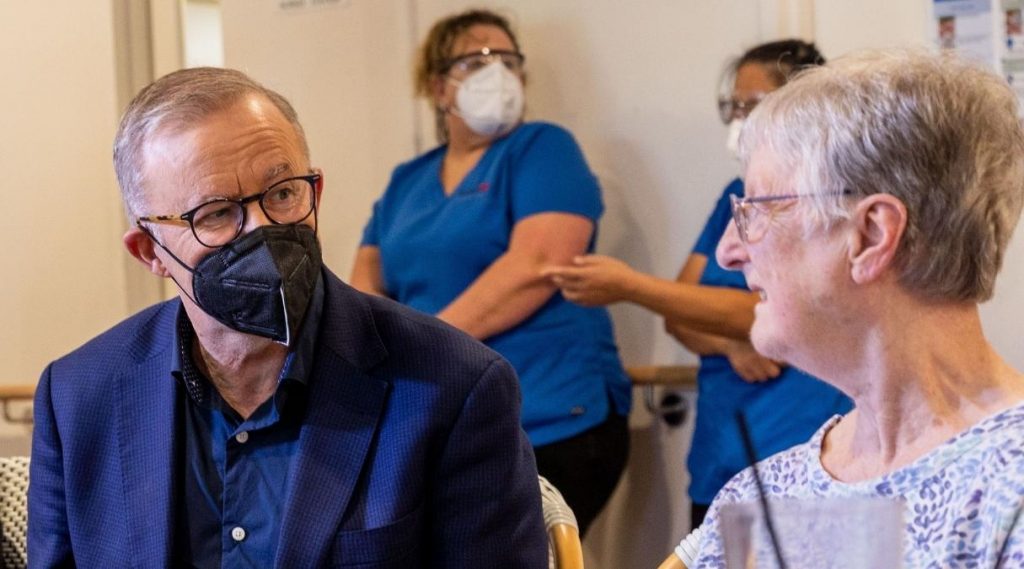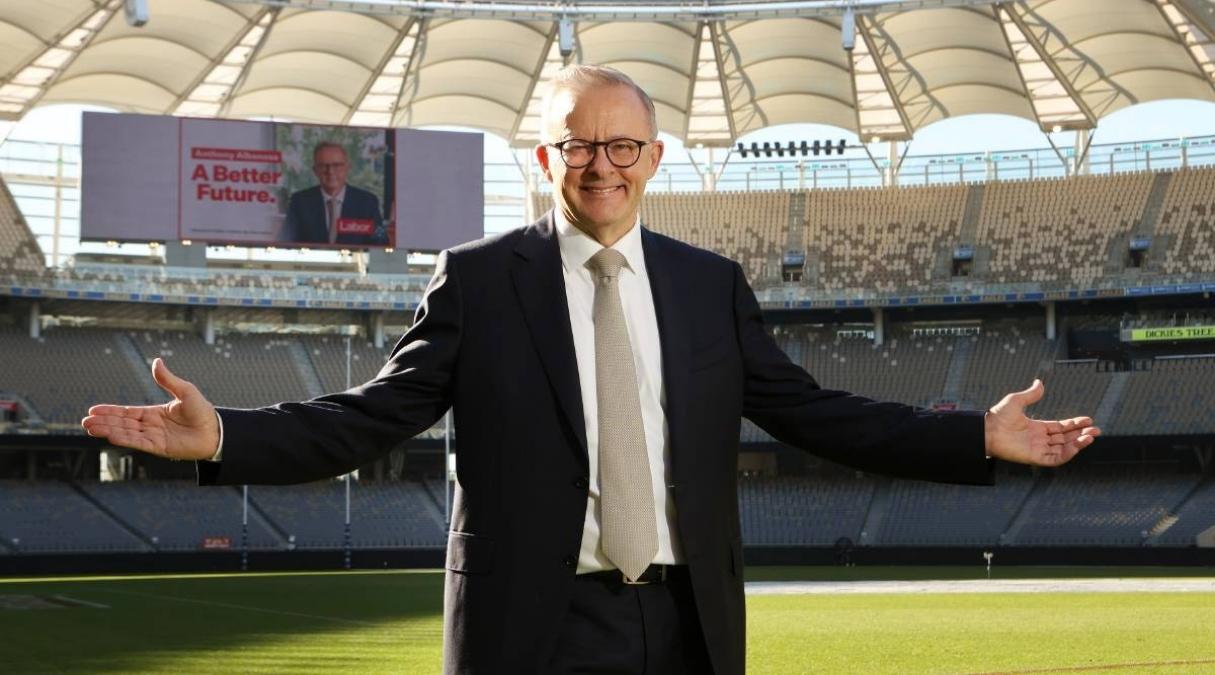As the election race enters its final half and a few days after he launched Labor’s election bid to win government, Opposition Leader and Member for Grayndler, Anthony Albanese, sat down with The Greek Herald and answered our questions about his ambitions to be prime minister, why he values multiculturalism and his belief that “Australians deserve a future where no one is left behind.”
TGH: Mr Albanese due to the current circumstances we see the cost of living increasing, wages remaining at the same levels with households already struggling. What has gone wrong in your opinion and what are your plans if Labor becomes government?
The cost-of-living crisis was always going to catch up with Scott Morrison. Everything is going up except your pay. While inflation is climbing at an annual rate of 3.5 per cent, growth in pay packets is up only 2.3 per cent. That means that in real terms, pay is going backwards.
As much as it hurts, we should not be surprised. Scott Morrison and Josh Frydenberg actually want growth in pay to lag growth in the cost of the daily essentials. It is their policy.
In 2019, former finance minister Mathias Cormann said low wage growth was “a deliberate design feature of our economic architecture”. So, when you cringe next time you pay your supermarket bill, remember it was the Morrison Government that went out of its way to keep a lid on your pay packet.
If Labor is successful in the upcoming election, we’ll take a different approach.
Our starting point will be an understanding that we need businesses to prosper and be profitable so they can create jobs for Australians. However, we should also be looking for ways to grow the economy, so everybody can get a piece of the success.
One way to boost the economy and productivity is to increase workforce participation. That’s partly the reason why a Labor government will make childcare more affordable for Australian families. We want more parents to work full-time if they choose.
TGH: Migrant communities -established and emerging- have been supporting the country through times of adversity and contribute to the economy. However, during the pandemic and after the floods, they felt neglected. How is Labor planning to change this?
Very sadly, the COVID-19 pandemic has challenged our multiculturalism, and revealed gaps in our national response – gaps the Morrison Government has refused to address. As a result, multicultural communities were left overexposed to the detrimental health, economic and social effects of COVID-19. Recently released ABS figures revealed people born outside of Australia have an age-standardised COVID-19 mortality rate of more than double that of people born in Australia. That’s unacceptable.
An Albanese Labor Government will include multicultural communities in the planning and decision making of health policy, and ensure we learn the lessons of the pandemic.

TGH: The country is experiencing a skills shortage crisis however since March last year more than 500,000 migrants -many of them skilled- have left Australia to work in countries like Canada, the UK or Singapore. How are you planning to attract and retain skilled migrants?
Skills shortages have profound impacts right across the national economy. I have announced already that Labor will tackle the national skills shortage by funding 465,000 fee free TAFE courses and up to 20,000 extra university positions in areas of demonstrated workplace shortage.
But with one and a half million Australians unemployed or underemployed, we must get back into the business of skills training. It’s not enough to say it’s all too hard and just rely on overseas workers on temporary visas.
We’ll create the independent Jobs and Skills Australia agency to work with industry, unions, and training providers to match the skills being taught with those actually needed by industry, not just today, but in the future.

TGH: You grew up among Greeks and as a son of immigrants you have experienced first-hand the challenges faced by multicultural communities. What keeps you going?
My mum raised me in council housing as a single parent. In 1963, that was a brave call. Mum’s aspiration was that my life would turn out better than hers. It was because of her that a working-class boy from council housing could one day become our country’s Deputy Prime Minister and go on to lead the Australian Labor Party. I owe her everything.
I grew up with the surname Albanese in the 1960s. I went to school up at St Mary’s Cathedral with all the Greek, Italian and Lebanese kids from the Inner West. It was great.
And I am very lucky and humbled to be the first person with a name like Albanese putting their hand up to be the next Prime Minister of Australia.
*How do you envisage Australia in ten years’ time if Labor becomes government in the upcoming federal election?
I went into politics because I believe good government can change the lives of Australians for the better.
After all the challenges and the sacrifices made during the pandemic, floods, and bushfires, Australians need and deserve a plan for a better future. A future where no one is held back, and no one is left behind.
If we are successful at the upcoming election, a Labor Government I lead will be focused on creating secure, well-paid jobs, making our future here, strengthening Medicare and making child care cheaper.

